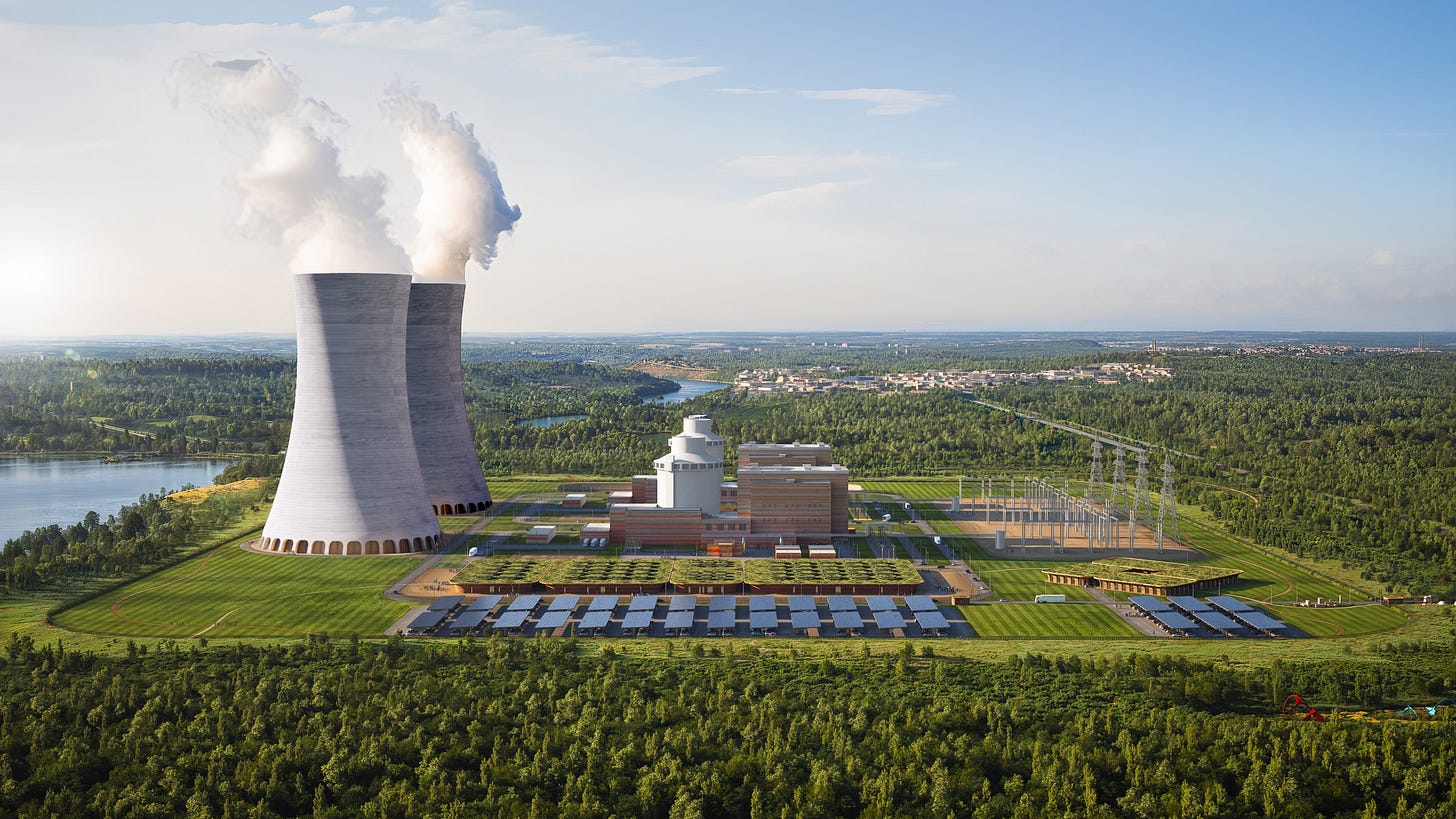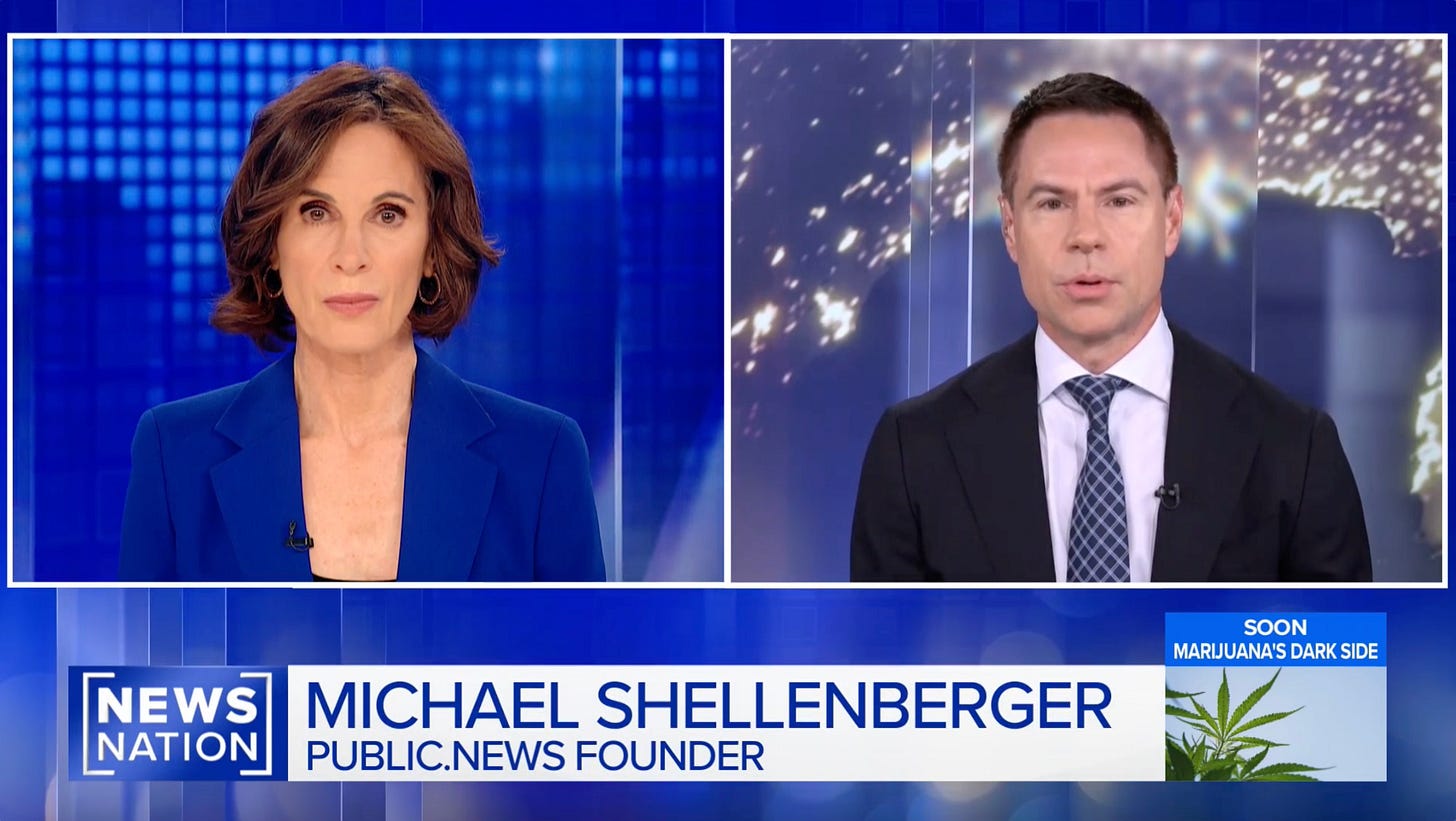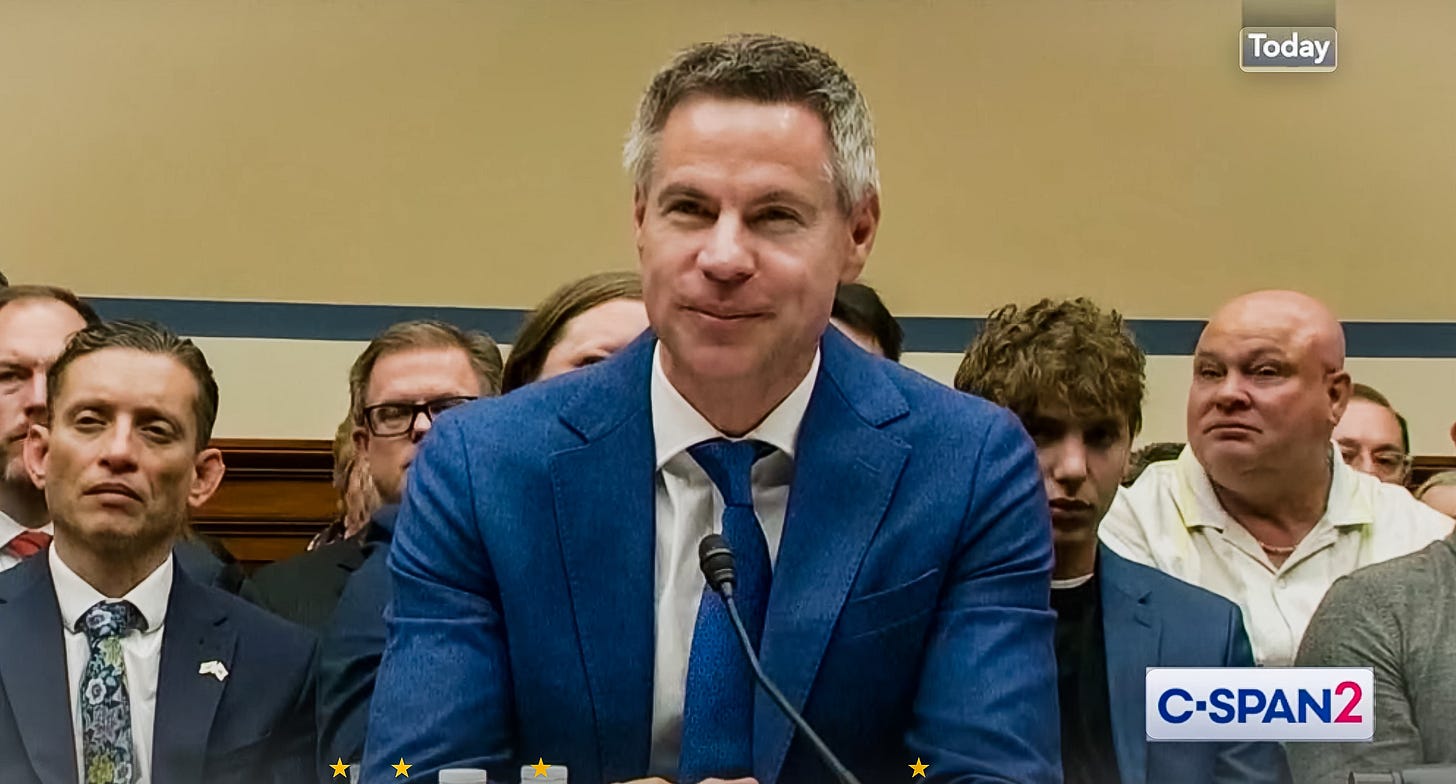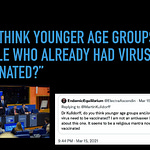“Time To Build Nuclear” - My Talk At The Kennedy Center, Wash DC, Sept 15
People often ask me why I don’t say much about nuclear energy anymore. The answer is because my colleagues and I saved most existing nuclear plants, including in California and Illinois, and high expected demand from data centers could result in new nuclear.
The problem is that the U.S. is still not building nuclear and has no real plans to. There are proposals for testing different reactor designs, which is great. But nobody is actually building a new, full-sized nuclear power plant in the United States.
That needs to change. And for that reason, I am excited to give a new, 20-minute TED-style talk on “Time To Build Nuclear” at the Kennedy Center in Washington DC. The Nuclear Company (TNC), which wants to build two AP-1000 reactors, like the two that Bechtel, Westinghouse, and Southern built in Georgia, is hosting the event. The event will also include a showing of an exciting new documentary, “The Nuclear Frontier.” RSVP soon — it is expected to sell out.
Mandatory Care For Violently Mentally Ill
A national debate has broken out over a mentally ill man who stabbed to death a Ukrainian refugee in Charlotte, North Carolina. I was grateful to speak with Elizabeth Vargas of News Nation (video interview above) to make the case for expanding mandatory psychiatric care for violently mentally ill people. This will require overcoming the ACLU, many Democrats, and much of the NGO Left. But it can be done. It will need the leadership of President Trump and Congress.
The Threat Of NGO Censorship
My Testimony To The House Foreign Affairs Committee
The picture many people have of nongovernmental organizations (NGOs) is overwhelmingly positive. We perceive them as independent of governments, which people often view negatively. We view NGOs as apolitical and nonideological, free from the biases and passions of political parties. And we perceive them as charitable, focused on helping the needy, or concerned for the public’s interest, not private or political interests.
And yet there is now overwhelming evidence that governments have funded and in some cases created NGOs to demand politically-motivated, unconstitutional, and dangerously ideological censorship. Other journalists, researchers, and I have documented how government intelligence and security agencies have done this in the US, Europe, and Brazil.[1] Those agencies work with existing or new NGOs to circumvent free speech protections, including the First Amendment, and legitimize what is politically and ideologically motivated as apolitical and non-ideological. This can accurately be described as “censorship-by-proxy.”[2]















